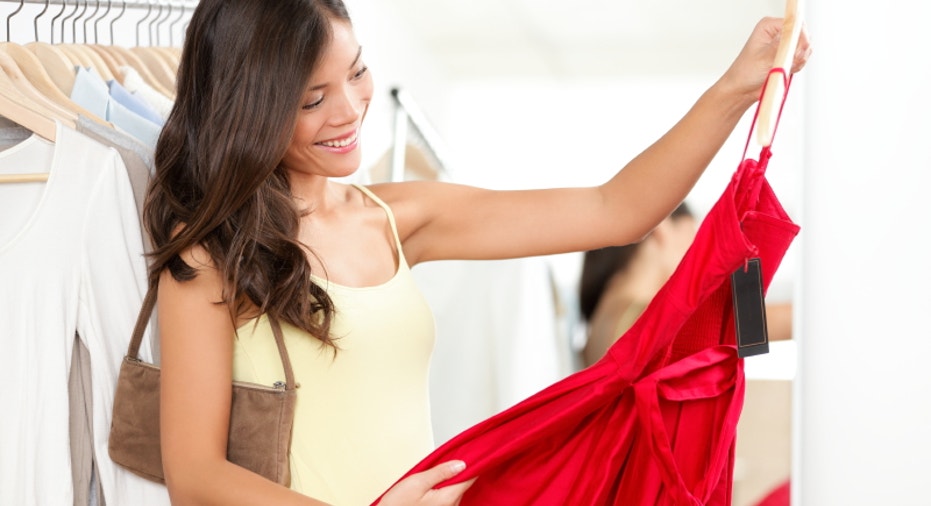Why Does Buying Stuff Make Us Feel Better?

If money can't buy happiness, why does it sometimes feel so good to buy stuff?
I mean, I don't really need another pair of cute pumps, but sometimes I just feel the urge to treat myself. I decided to ask the experts about this, and was surprised at what they had to say.
While purchasing THINGS for ourselves can make us happier in the moment, spending money on EXPERIENCES has a much greater correlation with overall happiness, according to Michael I. Norton, professor of business administration in the marketing unit of Harvard Business School, and co-author of Happy Money: The Science of Smarter Spending.
Norton's research suggests that after a person earns $75,000 per year, which is approximately what it costs to meet basic expenses, the relationship between money and happiness tapers off. For example, if you made $150,000, instead of $75,000, you could probably afford a bigger, nicer house.
"You may like the house more, but it doesn't change how much you like your life," says Norton.
Ok, so back to my cute pumps. Why does walking out of the store with my brand new shoes feel positive?
"Instant gratification," says Norton. He compares it to eating fast food. We know it's ultimately not good for us, but it sure tastes great at the time.
Buying material things gives us at least a temporary boost, according to Margaret Meloy, associate professor of marketing at Penn State University. Her research found that people will go into a mall to make unplanned purchases more often when they are feeling down, or in a generally subdued mood. Purchasing material things provides a faster pick-me-up than spending money on an experience, like a spa treatment or dinner with friends, which requires some planning, she says. That explains why we more often spend money on things, rather than experiences.
But if we really want to get the most happiness for our money, the experts say we should try to replace material purchases with experiences, like a vacation or a baseball game. Norton says that because experiences are usually shared with people, they add more to a person's happiness. So making choices to spend money in ways that allow for more time with other people, even strangers, can lead to a better sense of well-being.
For example, you may think you can't afford to pay someone to clean your house. But if you’re spending $5 on a latte, twice a day, you’re spending $50 a week on coffee. If you cut the caffeine fix, you could use the savings to hire someone to clean the house so you would have more free time during the weekend to spend with friends and family, Norton says.
He also said his studies found that people were happier when they spent money on other people. Even things like paying for private school for your kids can bring more happiness, if it's perceived as a gift.
So go ahead and spend some money. But spending on a night out with friends or treating someone to lunch may be a better investment on the happiness scale.



















